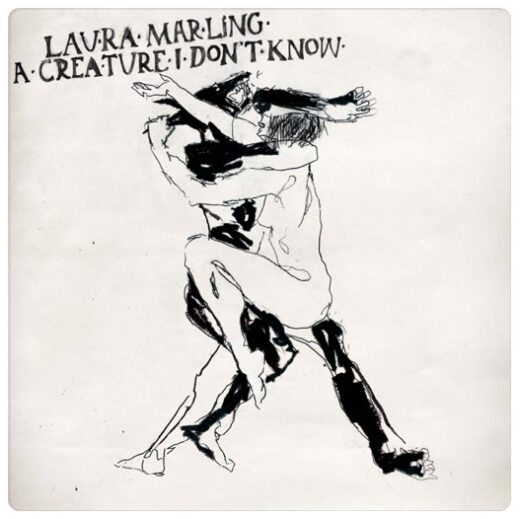
“Raised on Robbery” is the epitome of high art illuminating an unforgettable subject: poetry in motion disguised as rock and roll..
Joni Mitchell recently left hospital, having been incapacitated by a mysterious illness. A good friend is taking care of her affairs, as Joni seems no longer able. It seems only appropriate at this time to celebrate the talents of one of the greatest songwriters of the past fifty years.
Her last performing experience happened a couple of years ago when she even treated her fans in Toronto to some new poems and a spirited and wholly successful stab at singing: she hasn’t sung much in recent years in public due to illness. She suffered from polio when she was a child, and though she recovered entirely, she like many other polio survivors was stricken again as an adult. Both her stamina and her will to tour and practise and sing (having lost her pure soprano voice to age and her indefatigable smoking habit) diminished her concert schedule to near nothing for the past several years.
Her first album (self-titled) for Reprise Records in 1967 was notable for several reasons: she wrote all the songs, did the cover art herself, and recruited some very talented people to work with her. David Crosby produced. Stephen Stills played bass. Not bad for a young girl from Saskatoon, Saskatchewan, Canada who had just arrived in Los Angeles a short time before. So all that is notable, but I think there was something even more important and more defining as to what this new performer was all about. It was in a note from Joni that appeared on the inside foldout cover. The note said: “This album is dedicated to Mr. Kratzman, who taught me to love words.” Well Joni, you’ve done the same for millions of fans the world over; you have taught us to love words just as Mr. Kratzman taught you.
“Back then, I didn’t have a big organization around me. I was just a kid with a guitar, traveling around. My responsibility basically was to the art, and I had extra time on my hands.” – Joni Mitchell
Your first couple of albums were pretty precious: overwrought and overwritten, but the swooping soaring range of your sparkling soprano enthralled us and your talent on both guitar and piano kept us listening. I have six of your vinyl albums and they all have foldout covers and the words to every song are printed out there on every one of those records, because you treated words as though they were something important. You made them important and by that I don’t mean you wrote poems and set them to music. Not at all. You have a keen sense of the vernacular, as evidenced by “This Flight Tonight” and “ For Free”, and “Be Cool” and especially “Raised on Robbery”, which was recorded for the album Court and Spark in 1974. By that time you were very cool yourself, with the reputation and the substance to attract such stellar players as Tom Scott, Joe Sample, Jose Feliciano, Larry Carlton, and Robbie Robertson, to name a few.
What’s interesting to me about “Raised on Robbery” is that you demonstrated conclusively that you had mastered the art of songwriting; this tune is poetry in motion in the guise of rock and roll. First off, there’s very little use of rhyme in the lyrics, but you’d never know it. I think it was Shelley who said “Rhyme is the refuge of mediocrity” and God knows that judgment stung me (yes, a published and very minor poet I must admit) to the quick, but I think you learned that in the making of your first few albums and never forgot it. Someone else, I think it was Blake, said “The road of excess leads to the palace of wisdom” and you knew this too. You got to the middle of your career very quickly – in three or four years – and you stayed there at peak level for another thirty years or so. What you did with “Robbery” was nothing short of brilliant.
Here’s the scene: a guy is sitting in the lounge of the Empire Hotel (maybe in Winnipeg, maybe in Huntsville, Ontario) and watching the hockey game – a Leafs fan – when a lady of the night comes along and offers to keep him company. She solicits his favours with one of the best come on lines a pro ever devised:
“I’m a pretty good cook
I’m sitting on my groceries
Come up to my kitchen
I’ll show you my best recipe”
Only a Canadian could have written this song, someone who has spent some time down on North Main near the CP Railway Hotel: somebody who played a one-nighter at the Auditorium and then went out to Kelekis Restaurant for their French fries, then moved on to the Empire Hotel for a beer or two before leaving for the next gig in Saskatoon. I’m thinking Gordon Lightfoot, Neil Young, Ian Tyson, or David Wiffen; they could have written this song. Not Joni, the beautiful art student from the Paris of the Prairies.
Somehow Joni had moved on in style and substance from her album Blue and her haunting “I wish I had a river I could skate away on”, which was yet another song that could have been written only by a Canadian. Skating outdoors in the winter is in our blood “like holy wine”, the same way hockey is. What she achieved here was new for her: most of her other work seemed to be taken directly from her own romantic experiences; in “Robbery” she adopts the persona of a lowlife scheming whore who has been used and abused by men but who still keeps coming back for more: her shtick with the guy trying to watch the hockey game is that she is so honest she tells him she was “raised on robbery”. A truthful fraud artist and crook. It is delicious to hear her sing it.
In the mid-seventies the Los Angeles based session musicians such as John Guerin on drums, Tom Scott on saxophone, and Larry Carlton on guitar had amassed stellar reputations for their musicianship, their jazzy sound, and their infectious melodies. Tom Scott played on hundreds of albums and brought something special to every session. Larry Carlton was the tastiest guitarist going. Joe Sample on piano was marvelous. Together on the Court and Spark album they made music of a high order that was both commercial and memorable.
Joni’s other big radio hit was “Free Man in Paris”, in which she puts forth the story of a record company executive “stoking the machinery of the popular song”. She puts in another great performance with “Twisted” , the Lambert-Hendricks-Ross number sung from the point of view of a humorous schizophrenic. It is a terrific number and it makes me wish she had taken this approach of creating characters outside of herself more often. Her confessional songs are often too introspective for most people.
Close to 50 years on from her first recording Joni’s music is still attracting attention. In 2008 Herbie Hancock, the noted jazz pianist, devised a tribute album based on her album Blue, the highlight of which was the song “River”. I saw Herbie being interviewed recently and he spoke of the delight of working for the first time with a project that focused on the beauty of words. He said there were no better words available than Joni’s. And Joni’s songs have become cultural touchpoints in so many ways. Consider this one:
“Joni Mitchell is the woman who taught your cold English wife how to feel”.” – Emma Thompson as Karen in the movie Love, Actually
Joni is the acknowledged female singer-songwriter extraordinaire though countless others have tried to match her: Carole King, Laura Nyro, Joan Armatrading to name a few, and most notably of the current crop, the talented English songwriter Laura Marling. Joni is well aware of her place in music history and has no false modesty. She said recently she thought she had no peers in the art of songwriting.
In an interview with CBC Radio she pronounced Bob Dylan “a plagiarist” and said her own musical peers were people like Duke Ellington and Louis Armstrong and Stravinsky. She also believes she is a painter first and foremost, but her prodigious song catalogue and her reputation put the lie to that wish. Even so, her first love was painting and she became a folksinger to support herself. Back in the late ’60s it was easier for her to earn a few dollars singing in a cafe in Toronto’s Yorkville than it was to sell an original painting. I think she made the right decision, though she has never strayed far from her art; in fact she has proclaimed as much in one of her songs: “I am a painter, I live in a box of paints”.
Joni, your songs are brilliant, whereas your paintings are interesting, even occasionally compelling, but they won’t be remembered a hundred years from now. Your songs will be. And “Raised on Robbery” is the epitome of high art illuminating an unforgettable subject.
“Let me sit down, you know drinkin’ alone is a shame
Look at those jokers glued to that damn hockey game”



No mention of Robbie Robertson playing on Raised on Robbery?
Thanks for the reminder! Robbie definitely contributed a rock feel to the song. This was a transformation away from Joni’s usual introspective approach to her material.
Good article but “she adopts the persona of a lowlife scheming whore” is pretty harsh. Woman’s just trying to make a living.
Great essay, all true. But when talking about ‘Robbery…’ you didn’t mention this line: “First he bought a ’57 Biscayne he put it in a ditch”. Any lesser writer, i.e. virtually all, would have just said ”57 Chevy’ and been happy, but Joni used the actual model name. Nice. True, the Biscayne didn’t come out until 1958, but that’s just being petty.
I have recently been listening to “Court and Spark” again and Raised on Robbery has been pleasantly stuck in my brain for the past few days. A wonderful song telling a very unlikely story. Joni has painted such indelible images with her words and voice.
It was the Empire Hotel in Huntsville, Ontario. The four-lane highway was the bypass so all the northbound tourists didn’t have to dawdle down the main street, highway 11, before getting to the cottage.
https://www.theglobeandmail.com/news/national/sun-sets-on-the-huntsville-empire/article4289369/